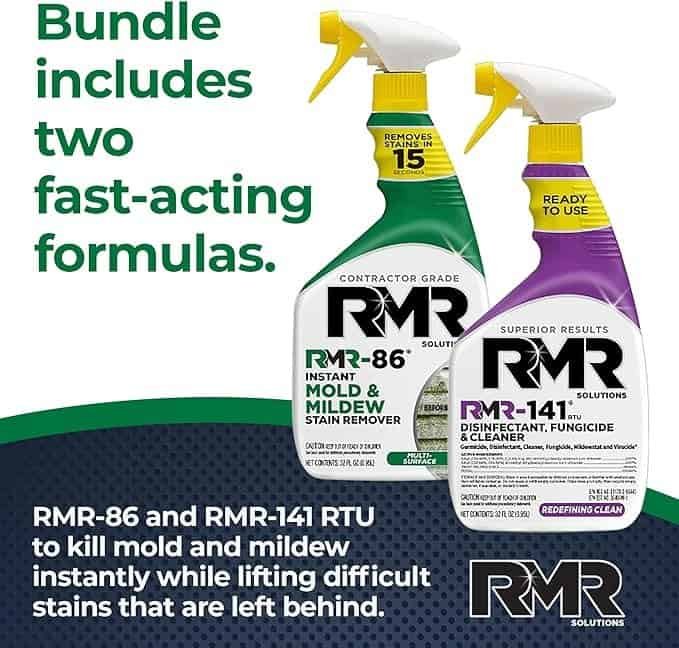Legal Rights and Advocacy for Tenants Exposed to Mold Causing CIRS

Mold is a common household problem that can lead to serious health issues if left unaddressed. One of the most severe health impacts of mold exposure is Chronic Inflammatory Response Syndrome (CIRS). CIRS is a multi-system, multi-symptom illness that can affect various organs and systems in the body. It can cause fatigue, brain fog, joint pain, and other debilitating symptoms that can significantly impact a person’s quality of life. While mold exposure can occur anywhere, it is particularly common in rental properties, where tenants may not have control over the property’s maintenance.
Tenants have legal rights and protections against mold exposure in rental properties. Landlords have a legal responsibility to provide a safe and habitable living environment for their tenants. This includes addressing mold problems in a timely and effective manner. Tenants can take legal action against their landlords if they fail to address mold issues, leading to CIRS or other health problems. However, navigating the legal framework for mold litigation can be challenging without proper knowledge and support.
This article will provide an overview of tenant rights and landlord responsibilities regarding mold exposure in rental properties. It will also discuss the legal framework for mold litigation and steps tenants can take to address mold problems in their rental units. Additionally, the article will provide information on tenant advocacy and support resources, financial implications and compensation, and prevention and long-term solutions for mold problems.
Key Takeaways
- Tenants have legal rights and protections against mold exposure in rental properties, and landlords have a legal responsibility to provide a safe and habitable living environment.
- Tenants can take legal action against their landlords if they fail to address mold problems that lead to CIRS or other health problems.
- Tenant advocacy and support resources are available to help tenants navigate the legal framework for mold litigation and address mold problems in their rental units.
Understanding Mold and Its Health Impacts

Mold is a type of fungus that grows in damp, humid areas and reproduces by releasing spores into the air. While most types of mold are harmless, some can produce mycotoxins, which can cause a range of health problems in humans and animals.
Types of Mold and Toxicity
There are many different types of mold, including Aspergillus, Penicillium, and Stachybotrys. Stachybotrys, also known as black mold, is one of the most toxic types of mold and can produce mycotoxins that can cause serious health problems.
Health Risks Associated with Mold Exposure
Exposure to mold can cause a range of health problems, particularly in individuals with weakened immune systems or pre-existing respiratory conditions such as asthma. Symptoms of mold exposure can include coughing, wheezing, nasal congestion, and eye irritation.
Recognizing Symptoms of CIRS
Chronic Inflammatory Response Syndrome (CIRS) is a condition that can develop in individuals who have been exposed to toxic mold. Symptoms of CIRS can include fatigue, joint pain, memory problems, and difficulty concentrating. It is important to note that not all individuals who are exposed to toxic mold will develop CIRS, and the severity of symptoms can vary widely.
If you suspect that you have been exposed to toxic mold and are experiencing symptoms of CIRS, it is important to seek medical attention and consult with a mold lawyer who can help you understand your legal rights and options for recourse.
Tenant Rights and Landlord Responsibilities
Tenants have the right to live in a habitable residence that is free from dangerous conditions that can cause harm to their health. Landlords have a responsibility to provide safe and healthy living conditions for their tenants. This includes protecting tenants from exposure to mold that can cause Chronic Inflammatory Response Syndrome (CIRS). In this section, we will discuss the legal rights of tenants and the responsibilities of landlords when it comes to mold exposure and CIRS.
Implied Warranty of Habitability
The implied warranty of habitability is a legal concept that requires landlords to provide a safe and habitable living environment for their tenants. This means that the rental unit must be free from dangerous conditions that can cause harm to the tenant’s health, such as mold. If a landlord fails to provide a habitable living environment, the tenant may have legal grounds to break the lease or sue the landlord for damages.
Landlord’s Duty to Repair and Remediate
When mold is present in a rental property, the landlord has a duty to repair and remediate the problem. This includes identifying the source of the mold, repairing any leaks or water damage, and removing the mold from the affected areas. If the landlord fails to remediate the mold, the tenant may have legal grounds to break the lease or sue the landlord for damages.
Inspection and Maintenance Obligations
Landlords have an obligation to inspect and maintain their rental properties to ensure that they are free from mold and other dangerous conditions. This includes regular inspections for water damage, leaks, and other conditions that can lead to mold growth. Landlords must also maintain the property to prevent mold growth, such as repairing leaks and ensuring proper ventilation.
In conclusion, tenants have legal rights to live in a habitable residence that is free from dangerous conditions that can cause harm to their health, such as mold. Landlords have a responsibility to provide safe and healthy living conditions for their tenants, including protecting them from mold exposure and CIRS. If a landlord fails to fulfill their responsibilities, tenants may have legal grounds to break the lease or sue the landlord for damages.
Legal Framework for Mold Litigation
Mold litigation is a unique type of toxic tort litigation, as mold grows naturally as part of the environment. It grows from the combination of spores, water, and a source. Mold can cause serious health problems, particularly in individuals with compromised immune systems. Therefore, it is important for tenants to understand their legal rights and options when exposed to mold.
Federal and State Laws Governing Mold
There are no federal laws that specifically govern mold. However, the Occupational Safety and Health Administration (OSHA) has established guidelines for mold exposure in the workplace. Additionally, the Environmental Protection Agency (EPA) provides information on mold and its health effects.
Most states have laws that require landlords to maintain rental properties in a habitable condition. These laws often include provisions for mold remediation. Tenants should check their state’s laws to determine their rights and obligations regarding mold.
California Law and Tenant Protections
In California, landlords have a legal obligation to provide tenants with a habitable dwelling. This includes maintaining the property in a condition that is free from mold. If a landlord fails to remedy a mold problem, a tenant may have the right to terminate their lease or file a lawsuit.
California also has specific laws that protect tenants from retaliation by landlords for asserting their legal rights. These laws prohibit landlords from retaliating against tenants who complain about mold or other habitability issues.
Navigating Mold Litigation
Navigating mold litigation can be complex and challenging. Mold cases often involve multiple parties, including landlords, tenants, insurance companies, and contractors. Additionally, mold cases may require expert testimony and scientific evidence.
Tenants who believe they have been exposed to mold should consult with an attorney who is experienced in mold litigation. An attorney can help tenants understand their legal rights, negotiate with landlords and insurance companies, and represent tenants in court if necessary.
In conclusion, tenants have legal rights and options when exposed to mold. Understanding the legal framework for mold litigation, including federal and state laws, California law and tenant protections, and navigating mold litigation, can help tenants protect their health and well-being.
Steps to Address Mold Problems in Rental Properties
Tenants who suspect mold problems in their rental properties must take prompt action to protect their legal rights and health. This section outlines the essential steps tenants should take when dealing with mold issues in rental properties.
Reporting Mold Issues to Landlords
The first step in addressing mold problems in rental properties is to report the issue to the landlord or property manager. Tenants should notify their landlord in writing, providing details of the mold problem, including the location, extent, and possible causes. Tenants should also request that the landlord take immediate action to address the mold problem.
Documenting Evidence of Mold and Damages
Tenants should document the mold problem and any damages caused by the mold. This documentation can be used as evidence in legal proceedings, if necessary. Tenants should take photographs and videos of the mold and any visible damages, such as water stains, peeling paint, or warped flooring. They should also keep copies of any correspondence with the landlord or property manager regarding the mold problem.
Professional Mold Assessment and Remediation
If the landlord fails to address the mold problem promptly, tenants may need to seek professional help. Tenants can hire an expert to assess the mold problem and recommend remediation measures. The expert should be certified and experienced in mold assessment and remediation. Tenants should provide the landlord with a copy of the expert’s report and recommendations.
In conclusion, tenants have legal rights and advocacy when dealing with mold problems in rental properties. By following the steps outlined in this section, tenants can protect their legal rights and health. Tenants should seek legal advice if their landlord fails to address the mold problem adequately.
Tenant Advocacy and Support Resources

Tenants who are exposed to mold causing CIRS may need legal aid, support groups, and educational resources to help them navigate the complex legal and medical landscape. Fortunately, there are a number of resources available to tenants who are dealing with mold-related health issues.
Seeking Legal Aid and Representation
Tenants who are dealing with mold-related health issues may wish to seek out legal aid and representation. Legal aid organizations can provide tenants with information about their legal rights, help them negotiate with landlords, and represent them in court if necessary.
Tenants who are seeking legal aid may wish to contact organizations such as the National Housing Law Project, which provides legal assistance to low-income tenants. Other organizations that may be able to provide legal aid to tenants include the Legal Aid Society and the National Low Income Housing Coalition.
Support Groups and Tenant Unions
Support groups and tenant unions can provide tenants with emotional support, as well as practical advice on how to deal with mold-related health issues. Tenant unions can also help tenants organize and advocate for their rights.
Tenants who are seeking support groups or tenant unions may wish to contact organizations such as the National Alliance of HUD Tenants, which provides support and advocacy for tenants in HUD-assisted housing. Other organizations that may be able to provide support and advocacy for tenants include the National Organization of Tenant Associations and the National Tenant Union.
Educational Materials and Awareness
Tenants who are dealing with mold-related health issues may wish to educate themselves about their legal rights and the health effects of mold exposure. Educational materials can help tenants understand their legal rights and the steps they can take to protect their health.
Tenants who are seeking educational materials may wish to contact organizations such as the Environmental Protection Agency, which provides information on mold and its health effects. Other organizations that may be able to provide educational materials include the American Lung Association and the National Institute of Environmental Health Sciences.
Overall, tenants who are dealing with mold-related health issues should be aware of their legal rights and the resources that are available to them. By seeking legal aid, support groups, and educational materials, tenants can protect their health and advocate for their rights.
Financial Implications and Compensation

Tenants who have suffered from mold-related health issues and property damage may be entitled to financial compensation. The following subsections provide information on the different ways tenants can seek compensation.
Rent Withholding and Lease Agreements
Tenants may be able to withhold rent if their landlord fails to address mold issues. However, this action should only be taken after consulting with an attorney and confirming that the mold is causing health problems or property damage. Tenants should also review their lease agreement to ensure that it does not prohibit rent withholding.
Recovering Mold-Related Costs
Tenants can seek compensation for mold-related costs such as medical bills, property damage, and relocation expenses. To do so, they should keep detailed records of all expenses related to the mold issue, including receipts and invoices. Tenants should also notify their landlord in writing of the mold issue and the costs they have incurred.
Suing for Property Damage and Health Issues
If the landlord fails to address the mold issue or disputes the tenant’s claim for compensation, the tenant may need to file a lawsuit. In such cases, the tenant should seek legal advice from an attorney who specializes in mold-related cases. The tenant may be able to sue for property damage, health problems caused by the mold, and other related damages.
Landlord liability for mold-related issues varies by state, so tenants should consult with an attorney who is knowledgeable about the laws in their state. Tenants should also be aware that damages in mold-related cases can be difficult to prove, and they may need to provide expert testimony to support their claim.
Prevention and Long-Term Solutions
Tenants exposed to mold causing CIRS should take steps to prevent mold growth and advocate for stronger mold safety standards. Here are some ways to prevent mold problems in residential buildings and improve air quality:
Improving Air Quality and Reducing Humidity
Maintaining good indoor air quality is essential for preventing mold growth. Tenants should ensure that their homes have proper ventilation and air circulation. They should also use air purifiers and dehumidifiers to reduce the humidity levels in their homes. High humidity levels can create a breeding ground for mold spores, which can cause respiratory problems and other health issues.
Preventing Mold Problems in Residential Buildings
Building owners and landlords should take steps to prevent mold growth in their properties. They should conduct regular inspections and maintenance checks to identify and repair any water leaks, plumbing issues, or other sources of moisture. They should also ensure that their properties have proper ventilation and air circulation systems.
Tenants should report any signs of mold growth to their landlords immediately. They should also keep their homes clean and dry, and avoid leaving wet items like towels or clothes lying around. Tenants should also make sure that their homes have proper ventilation and air circulation.
Advocating for Stronger Mold Safety Standards
Advocacy is an important tool for tenants to improve mold safety standards. Tenants should work with their local government officials and advocacy groups to push for stronger regulations and standards for mold prevention and remediation. They should also educate themselves and others about the dangers of mold exposure and the importance of taking preventive measures.
In conclusion, preventing mold problems and improving air quality should be a top priority for tenants, landlords, and building owners. By taking preventive measures and advocating for stronger mold safety standards, tenants can protect themselves and their families from the harmful effects of mold exposure.
Frequently Asked Questions
What are a tenant’s rights when mold is found in their rental property?
When mold is found in a rental property, tenants have the right to a safe and habitable living environment. According to Nolo, landlords have a legal obligation to maintain their rental properties in a state of good repair, and this includes addressing mold issues promptly. Tenants may be able to take legal action against their landlord if they fail to address mold issues in a timely manner.
How long does a landlord legally have to address mold issues once they are reported?
The timeframe for landlords to address mold issues can vary by state and local laws. However, according to Rental Awareness, landlords are generally required to address mold issues within a reasonable amount of time after being notified by a tenant. In some cases, this may be a matter of days or weeks, depending on the severity of the mold problem.
Can tenants withhold rent if their landlord fails to remediate mold?
Tenants may be able to withhold rent or take legal action against their landlord if they fail to remediate mold issues. However, tenants should proceed with caution and seek legal advice before taking any action. Withholding rent can result in eviction proceedings, and tenants may be required to pay back rent if a court finds that the landlord was not at fault.
What steps should tenants take to document and report mold exposure in their rental unit?
Tenants should document any mold exposure in their rental unit by taking photographs and keeping a log of any symptoms they experience. They should also report the issue to their landlord or property manager in writing and keep a copy of the letter or email for their records. If the landlord fails to address the issue, tenants may want to consider contacting a mold remediation specialist or seeking legal advice.
Are landlords responsible for relocating tenants during mold remediation?
Landlords may be responsible for relocating tenants during mold remediation, depending on the severity of the mold problem and the extent of the work required. According to Safe In Home Air, landlords may be required to provide temporary housing or hotel accommodations for tenants during the remediation process. However, this can vary by state and local laws, so tenants should consult with an attorney to determine their rights.
What legal recourse do tenants have if mold exposure leads to health issues?
If mold exposure leads to health issues, tenants may be able to take legal action against their landlord for damages. According to Nolo, tenants may be able to sue their landlord for negligence or breach of the implied warranty of habitability. However, tenants must be able to prove that their health issues were directly caused by exposure to mold in their rental unit.














